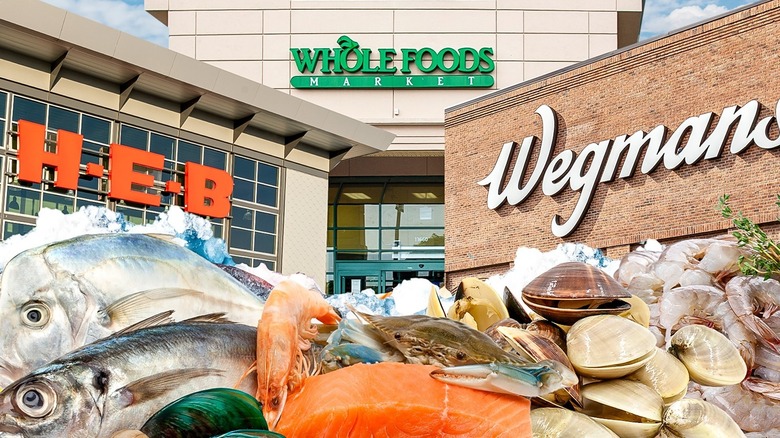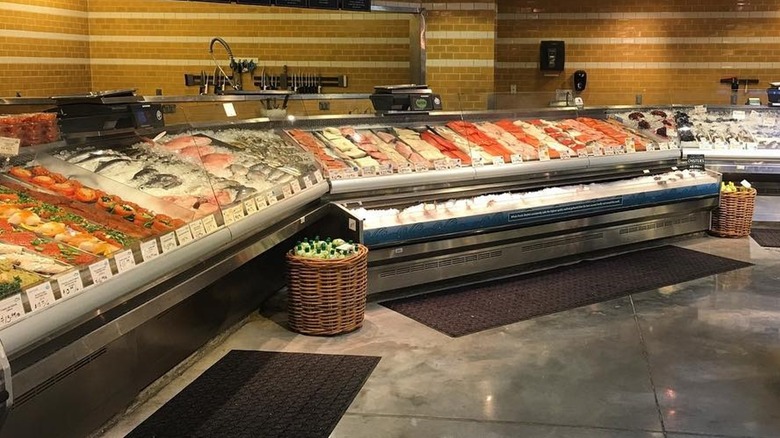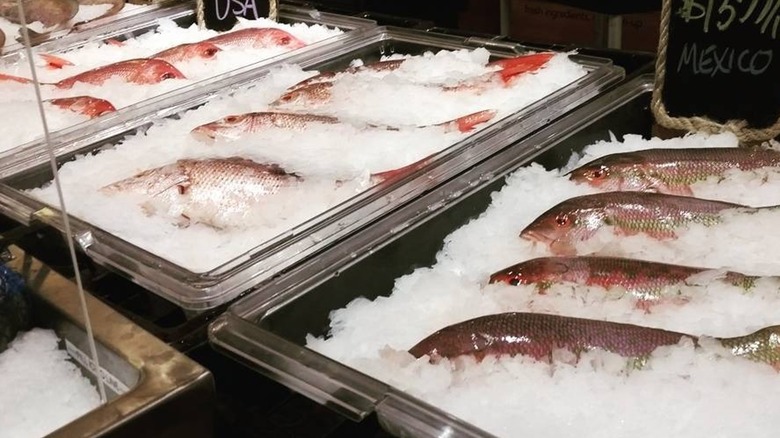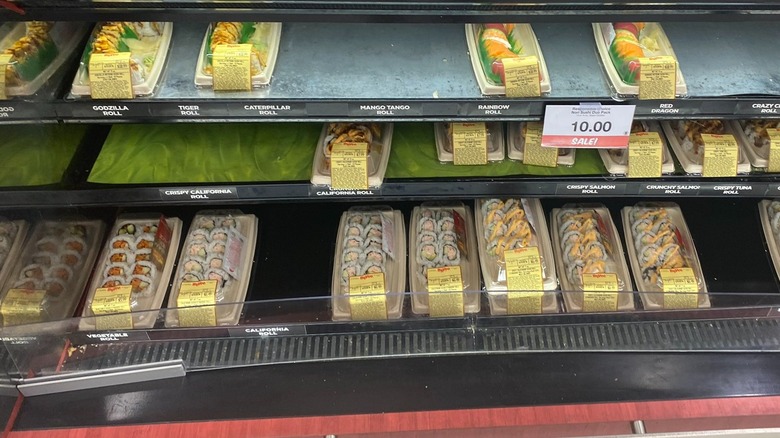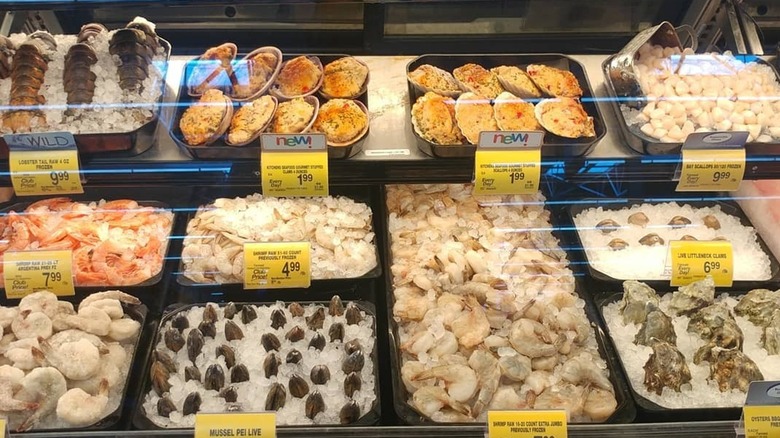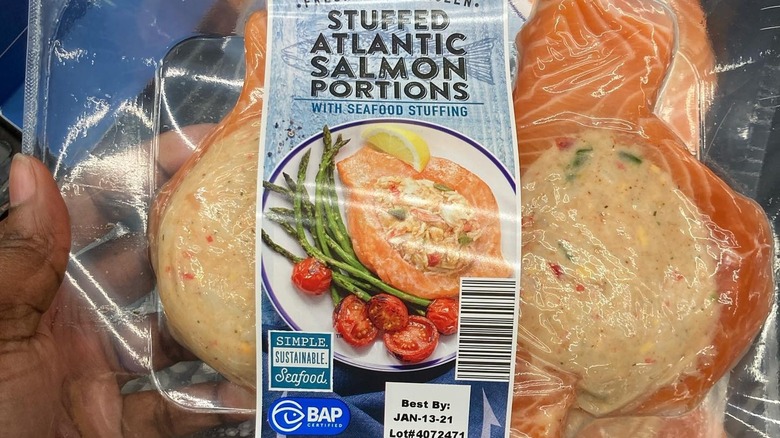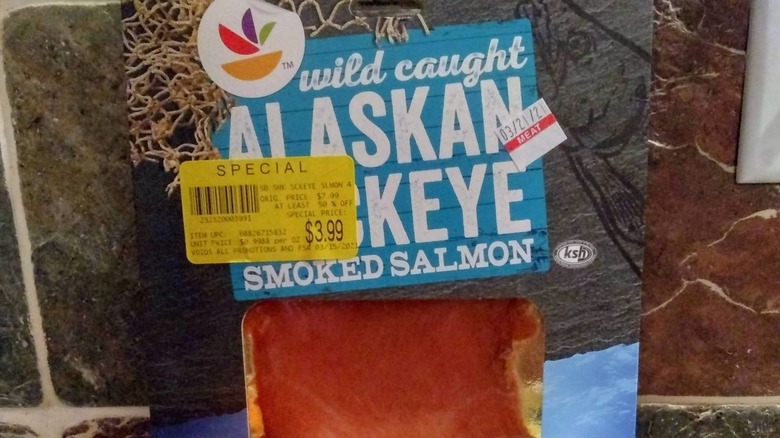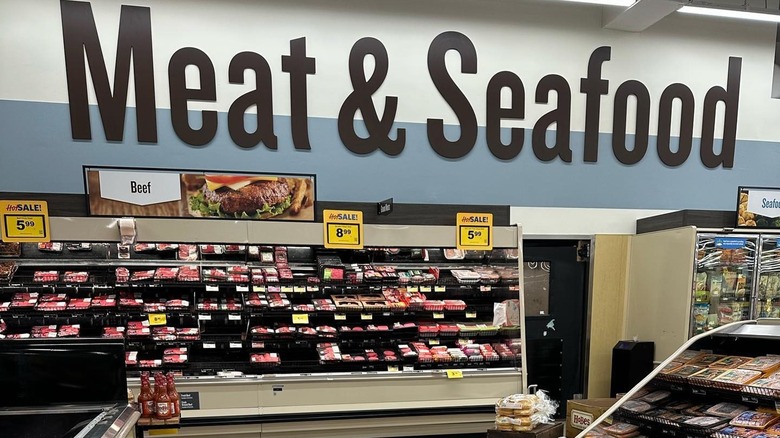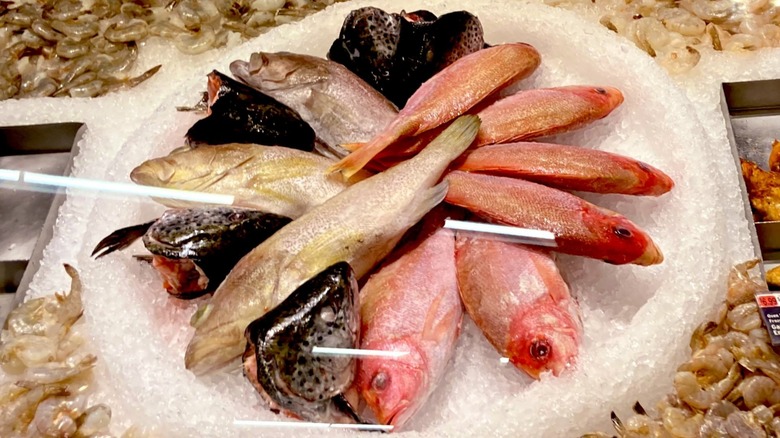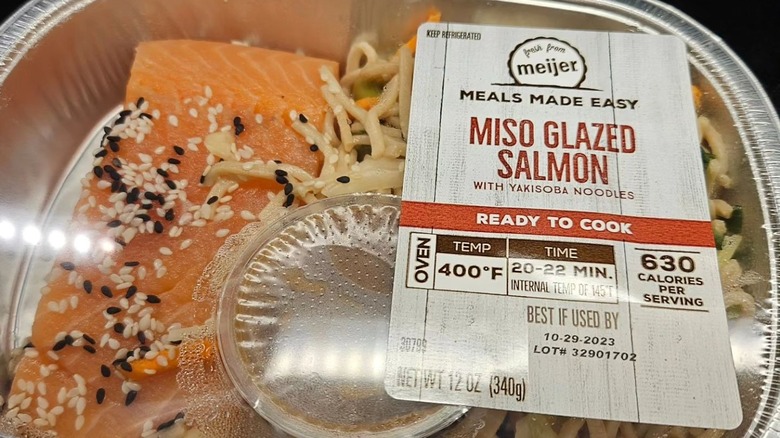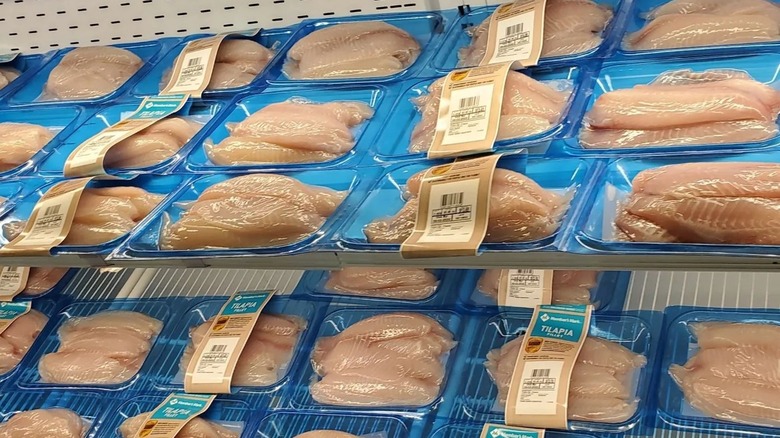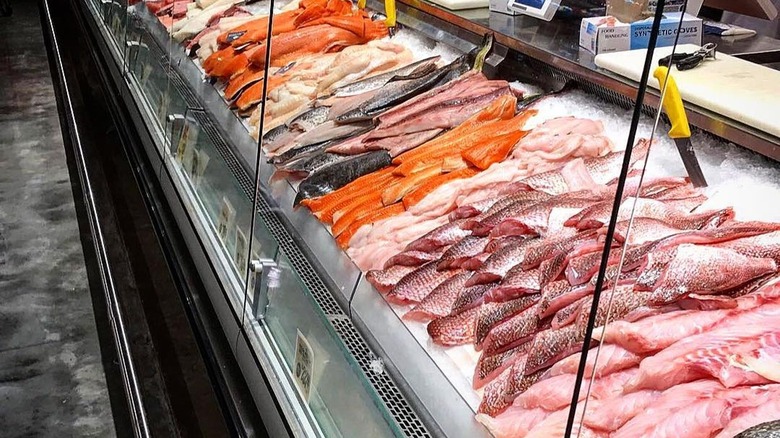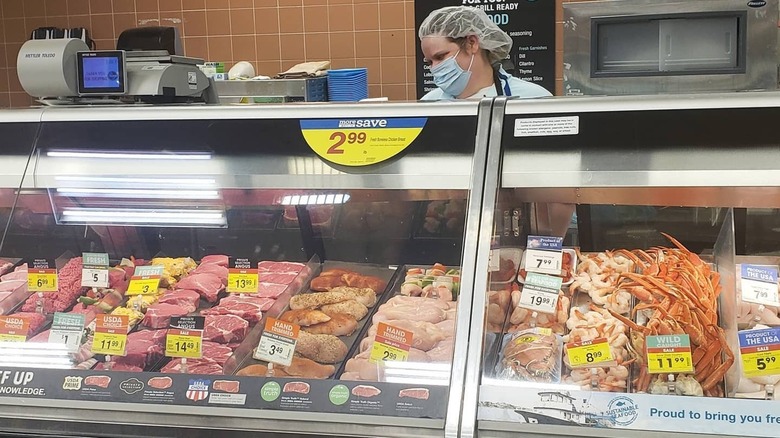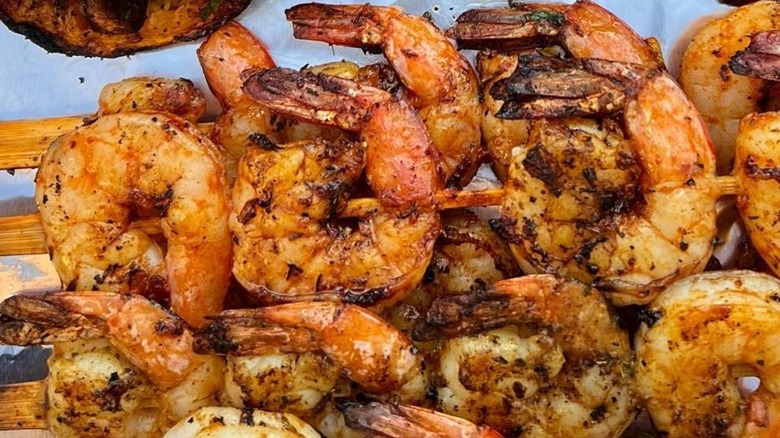13 Grocery Store Chains That Offer High-Quality Fresh Seafood
Seafood lovers know that a good piece of fish is a delicious part of a nutritious diet. However, not all grocery stores that sell the most popular seafood are equal. Sustainability, trustworthy labeling, and high-quality cuts of fish are all important. How do you know if your store is one of the best supermarkets to buy fish? The best stores partner with trusted organizations to validate or improve their level of sustainability.
Two of the most reliable include the nonprofit Marine Stewardship Council (MSC) and the Aquaculture Stewardship Council (ASC). To qualify for these certifications, fisheries must ensure their fish are healthy and raised for longevity. They must also minimize any disruption to the ecosystem and meet other sustainability standards.
The next one is BAP, which stands for Best Aquaculture Practices, which is unique because it certifies every step of the fishing process, from hatcheries and fish farms, to feed and plant ecosystems. Its standards are based on environmental responsibility, animal welfare, food safety, and social responsibility, all guided by transparency. Greenpeace also provides a grocery store scorecard for seafood including sustainable policies, initiatives, and transparency. It also deducts points for seafood it believes stores should not sell.
We've ranked nearly all these grocery stores by their Greenpeace ranking since they set a high standard. Next, we determined how much each store demonstrated a commitment to sustainability through its actions and certified seafood offerings. The final standard we examined was how well the grocer cared for and served its customers.
Whole Foods
Nationwide chain Whole Foods can brag about the quality of its seafood. It sports the top grade from Greenpeace for sustainability along with both MSC and BAP certifications on products. The storeprides itself with a large range of sustainable wild-caught fish, such as salmon, and avoids selling seafood from compromised ecosystems. They also carry farm-raised seafood, which are all third-party verified and certified "responsibly farmed." These include salmon, arctic char, tilapia, shrimp, rainbow trout, and mollusks.
Whole Foods goes above and beyond to provide sustainable seafood, including canned tuna. In 2017, it joined the International Pole and Line Foundation (IPNLF), promoting the most sustainable form of catching this fish. All canned and other tuna at Whole Foods meets these standards and they offer quite a selection! This organization is dedicated to helping fisheries maintain environmentally safe practices that protect local communities. It was the first U.S. grocer to take such a measure.
And that seafood must also live up to its everyday standards. Whole Foods bans over 200 ingredients from its shelves, including items they deem harmful that are typically used to preserve or color seafood. And here's one thing you probably didn't know about Whole Foods: its staff can prepare your fresh fish for you before checkout. That includes deboning, deveining, and seasoning seafood to make your meal prep easier. Seafood shopping at Whole Foods is a no-brainer.
Wegmans
With its extensive allergy-friendly aisles, and a large selection of organic options, Wegmans is one of the premier places to shop for those in the Eastern U.S. Its brand-new New York City location has a seafood specialty that no one else in the U.S. offers. According to the store, this is the only location in the States where shoppers can buy 18 varieties of fish directly sourced from Japan's acclaimed Toyosu fish market.
Adrian Hutchins, the fishmonger at the new location, says this store will impact the entire chain, claiming that the store is meant to be "a think-tank and a school" to improve service and eventually expand its seafood offerings to locations around the country. But its sustainability efforts don't end there. Wegmans is pioneering more environmentally friendly seafood packaging as the first grocer to replace the single-use Styrofoam packaging for fish with reusable plastic containers.
Offering a lot of options, we recommend Wegmans Chilean Sea bass which is frozen but MSC-certified. We also suggest the sushi, which has a nice fresh selection every day. With an eye on eco-friendly solutions and the vision to improve its seafood offerings nationwide, it's easy to see why Wegmans is one of the best grocery stores in the U.S.
Hy-Vee
Serving the Midwest and Southern U.S., Hy-Vee knows that consumers want simple, quick answers for buying nutritious, sustainably sourced fish. Instead of featuring a variety of confusing labels and signs, its simplified Responsible Choice program makes seafood shopping easy for consumers. According to Nate Stewart, VP-perishables for Hy-Vee, "Some retailers have six or seven different qualifications or logos or signs that they'll put their sustainable seafood under. We have one: Responsible Choice." Some excellent options that bear this label include scallops, cod, fresh tuna, mussels, and tilapia.
This program closely aligns with Monterey Bay Aquarium's Seafood Watch, a nonprofit that publishes guides and other resources to help consumers choose sustainable seafood. Similar to Whole Foods' program, items that Seafood Watch greenlights as "best choice" or "good alternative" qualify for the Responsible Choice seal.
But that's not the only reason this supermarket gets high grades from Greenpeace. Hy-Vee will not sell any genetically modified or genetically engineered seafood. They've partnered with Businesses for Bristol Bay to protect the region from the devastating consequences of toxic runoff on marine life, especially wild salmon, protecting fisheries and the local community. Hy-Vee is a forward-thinking supermarket, committed to supporting the United Nations Sustainable Development Goal (SDG) of supporting Life Below Water. It is employee-owned, features its own gym, and employs on-site dieticians at many locations, helping you create delicious seafood dishes.
Safeway
With another top score from Greenpeace, Safeway earns high marks for helping consumers choose sustainable fish. For over a decade, this chain has been working with the nonprofit Fishwise to offer products that benefit the environment while ensuring best practices for catching fish. It offers MSC-certified fish across the 17 states it serves. Like Hy-Vee, Safeway has developed its own Responsible Seafood Program for shoppers. It uses the standards of the Monterey Bay Aquarium Seafood Watch program and carries seafood with MSC and ASC certifications.
Safeway has had a few hiccups in the past. In 2017, one of the D.C. location stores sold bad clams. Five years later, Safeway stores in Oregon and S.W. Washington state had some ready-to-eat seafood mislabeled. Despite these local challenges, the recent high mark from Greenpeace means the company is moving forward to overcome these hurdles. If you're still nervous about buying seafood when shopping at Safeway, feel free to question the fishmonger about the freshest selections. When shopping the aisles, choose the Open Nature brand for wild-caught Alaskan sockeye salmon, Pacific halibut, scallops, Pacific cod, and both swordfish and tuna steaks.
Aldi
Shoppers love Aldi because they can get Whole Foods quality products for a fraction of the cost. This international grocery chain also offers many affordable options for clean and organic eating. They do not freeze their fresh-caught fish, so this is an excellent store when shopping for your best salmon and tilapia recipes.
So it's no surprise that Aldi has partnered with the nonprofit Sustainable Fisheries Partnership to ensure that both fresh and frozen fish selections are of the highest quality. In addition to a high score from Greenpeace, it also sources MSC, ASC, and BAP-certified seafood.
How are they doing? In March 2023, Aldi won the MSC Best Sustainable Seafood Supermarket. MSC awards this prize to the supermarket that provides the largest array of MSC-certified seafood options for a reasonable price. When you're looking for quality seafood on a tight budget, Aldi is your go-to shop. Don't forget to bring a quarter for the shopping cart so you can fill it up. You don't want to miss out on all the other great deals!
Giant Food
With locations in Pennsylvania, Maryland, Virginia, West Virginia, and New Jersey, Giant Food is working to improve transparency around its seafood sourcing. In addition to a high rating from Greenpeace in 2020, Giant Food participates with the Ocean Disclosure Project (ODP), an organization that provides a platform for voluntary disclosure of seafood sourcing.
This is important news because in 2019, Oceana discovered that about 20% of all seafood was mislabeled in the U.S. While it did not name the offending stores, the study covered 400 samples collected from 250 stores across the country, demonstrating the persistent need for reform. Giant's partnership bodes well for customers seeking transparency.
The grocery chain also launched Bags 4 My Cause, which supports nonprofits while reducing waste. They donated $15,000 of these funds to the Alliance of the Chesapeake Bay, which seeks to improve land and water resources.
Giant continues to stand out as an up-and-coming grocery store. They've recently expanded organic and allergen-friendly food options and recommend their Nature's Promise brand wild-caught haddock fillets, doc, and Alaskan sockeye salmon. They also offer several programs to help shoppers save money while pursuing worthwhile sustainability goals.
Food Lion
Located in the Mid-Atlantic and Southeastern U.S., Food Lion stores feature seafood with both MSC and BAP fish certifications and a good Greenpeace rating. Like Giant Food, it went a step further in 2020 by choosing to work with the ODP, which helps companies to be transparent about seafood sources and to disclose the environmental sustainability of those sources. Food Lion's partnership with a nonprofit research center, the Gulf of Maine Research Institute, makes it stand out. Together, they work to ensure that all the fish it sources meet its sustainability standards.
Food Lion has kept sustainability top of mind for many years, with a policy that covers 1,000 varieties of seafood. In 2020, it announced the launch of this policy by donating thousands of sustainable seafood products to food banks. As of 2023, it has received the Environmental Protection Agency's ENERGY STAR award for 22 years in a row — the only retailer in the U.S. to earn that distinction. Food Lion states they are committed to providing cost-effective seafood. We recommend Nature's Promise wild-caught sea scallops. With customer perks like its 10% military discount on Veterans Day and the "to go" option on its app, this supermarket is worth a visit.
Hannaford
Neck and neck with Food Lion's Greenpeace rating is Hannaford Supermarkets, located in the Northeast. This small but sustainable grocery outlet is a welcome addition to the list. Its latest initiative is to launch a seafood guide available in six different languages to promote food choices for diverse communities. The guide includes both nutrition benefits and cooking tips for local seafood varieties, helping this community adapt their cooking traditions.
Hannaford is making even more changes to support shoppers. Starting in 2022, the store overhauled several locations to improve its offerings. This includes providing more fresh pre-prepped meals and a wider selection of produce, meats, seafood, and cheeses at certain locations. It has also increased options for organic and gluten-free eaters. Hannaford has added self-checkout stations, to-go ordering, and delivery services to give shoppers more options. Some highlights include locally caught Gulf of Maine seafood offerings such as salmon, haddock, and hake.
Meijer
In 2018, the midwestern chain Meijer took a big step towards sustainability by partnering with Indian Brook Trout Farm, known for its eco-friendly fishing practices. At the time, this was the only BAP-certified aquaculture facility in the country. The partnership enabled Meijer to bring sustainable rainbow trout to its stores. The fish has always been a staple in the Midwest.
But Meijer has always been a trendsetter. The decades-old grocer was the inspiration behind Walmart. Its seafood sustainability practices go back over a decade, including getting its suppliers on track with these practices. Meijers carries Sea Tales MSC-certified sardines, anchovies, and tuna. We also recommend Latitude 45 Smoke Roasted Atlantic salmon. Meijer's commitment to the community is consistent as well. Today, it is famous for its low prices and for providing free medicine to consumers. Its Simply Give program allows shoppers to add a $10 food card to donate to local food pantries. Meijer continues to improve its sustainability and accessibility efforts.
Sam's Club
Best known for cost-effective products, Sam's Club provides affordable choices for seafood lovers. In 2021, the store announced its new sustainability efforts. This included a relaunch of its private label brand, Member's Mark, including efforts to remove products that do not meet sustainable standards. It is committed to sourcing all seafood from farms certified by the Global Sustainable Seafood Initiative.
In 2017, Sam's Club had the distinction of winning the MSC's U.S. Ocean Champion award in an area many of its competitors overlook: certified sustainable fish and krill oil. These products are sold under its Member's Mark label. Sam's Club is owned by Walmart and is rated well by Greenpeace. Both stores also carry seafood with MSC and BAP certifications. Leadership at both organizations is working to provide more transparent sourcing for its seafood by 2027, providing shoppers with affordable and safe seafood choices for their families. The popular Member's Mark steelhead trout fillet is excellent.
H-E-B
Many Texans compare this locally-based store to Whole Foods, however, H-E-B. has been in business longer. Some shoppers consider it the best grocery store in America. Its seafood sustainability policies are likely part of the reason. In 2020, H-E-B. worked with the Environmental Defense Fund to update its sustainable seafood guidelines. This included more transparency about how fish is caught and providing information to consumers. According to Jason Driskill, director of seafood at H-E-B, "The health and management of individual fisheries and farms are considered in all of our sourcing decisions ... We owe it to our customers to provide a fully traceable and transparent seafood supply they can trust." H-E-B. has removed stock supplied by vendors that don't measure up to these standards.
Additionally, the store has provided shoppers with tools to find detailed information about its seafood. The seafood counter carries selections with both BAP and MSC certifications, covering fresh and frozen choices. H-E-B. also claims to be the largest retailer of locally sourced seafood from the Gulf of Mexico. Along with high marks for customer service and reviews as a great place to work, check out H-E-B for fresh tilapia, black mussels, Atlantic salmon, and Pacific white shrimp the next time you're in Texas.
Kroger
With locations primarily concentrated in the Midwest, Mid-Atlantic, and Southern states, Kroger also offers responsibly sourced fish. It has worked with WWF for over a decade to continually improve its sustainability policies. These include sourcing 95% of wild seafood from MSC-certified fisheries and 100% of tuna from International Seafood Sustainability Foundation companies, including 20% from MSC-certified fisheries by 2025. They also committed to prioritizing seafood sources that are BAP, ASC, or Global G.A.P. certified. Kroger is even making sure that its third-party sushi vendors align with these sustainability efforts so you don't have to avoid the grab-and-go dishes.
But one of the more exciting offerings from this grocer is the locations that offer a customizable seafood counter. In these stores, shoppers can take their seafood, add seasonings, and wrap it in an oven-ready bag before checking out. The top sustainable seafood offerings include Atlantic salmon fillets, freshwater shrimp, and Pacific cod. With cost-effective pricing and its continuing WWF partnership, this is one to check out.
Sprouts Farmers Market
Serving 23 states in the U.S., Sprouts has been compared to Whole Foods. This chain is committed to providing organic foods, a large variety of produce, and a focus on sustainability. It's no surprise that it gets high grades for sustainable seafood. One of the best perks of this food chain is that it keeps a culinary director in-house to help you with all your selections, including fish options. Some shoppers claim this makes all the difference in taste and quality of selections. We recommend buying Aqua Gems frozen raw shrimp, Next Wave garlic butter mussels, and Northern Chef wild-caught frozen Chilean sea bass.
With both BAP- and MSC-certified seafood available, Sprouts is committed to sustainability. The chain is moving forward on environmental, social, and governance (ESG) goals. These encourage companies to develop more eco–friendly and equitable policies that include responsible sourcing, climate-friendly policies, and reducing waste and plastics. Regarding seafood, Sprouts refuses to stock seafood that is not traceable or is genetically modified. They will not sell threatened species that do not have a recovery plan, nor any that is sourced from companies that harvest sharks for their fins. With shelves loaded with up-and-coming organic and natural brands, we highly recommend checking out its seafood.
